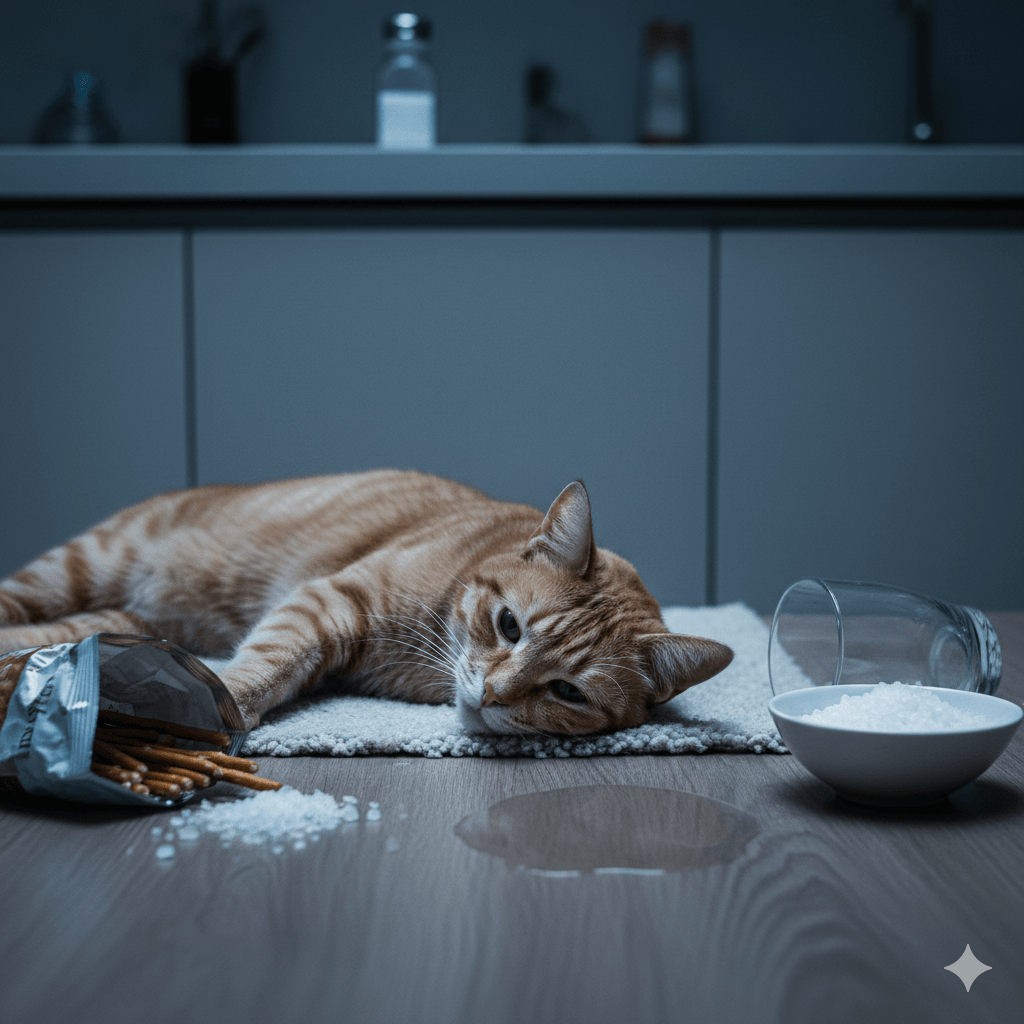Recognizing the Symptoms of Ammonia Poisoning from Cat Urine
Living with cats can bring immense joy, but it also comes with responsibilities—especially when it comes to maintaining a clean and safe environment. One potential hazard that often goes unnoticed is ammonia exposure from cat urine. Over time, accumulated or improperly cleaned urine can release ammonia fumes, which can pose health risks to both humans and pets. Understanding the symptoms of ammonia poisoning is crucial for early detection and prevention. In this guide, we’ll explore what ammonia poisoning entails, how to identify its signs, and steps you can take to protect your household.
Understanding the Impact of Ammonia on Your Body
Ammonia is a colorless gas with a sharp, pungent odor that can irritate the respiratory system and other parts of the body. Prolonged exposure to high concentrations of ammonia from cat urine can lead to a range of symptoms. Here’s what you need to know about how ammonia affects your health:
Respiratory Irritation :
Ammonia fumes can inflame the airways, causing coughing, wheezing, and shortness of breath.Eye Irritation :
Exposure may result in red, watery, or itchy eyes due to the gas’s corrosive nature.Throat Discomfort :
A burning sensation or sore throat is common with prolonged inhalation of ammonia fumes.Headaches and Dizziness :
High levels of ammonia can trigger headaches and feelings of lightheadedness.Nausea and Fatigue :
Some individuals may experience nausea or extreme tiredness after exposure.
If you notice any of these symptoms, especially in areas where cat urine has accumulated, it’s important to address the issue promptly to prevent further harm.
Key Symptoms to Watch For
The sooner you recognize the signs of ammonia poisoning, the better you can mitigate its effects. These symptoms often appear gradually but should not be ignored. Here are some early warning signs to look out for:
Persistent Coughing :
A lingering cough could indicate irritation caused by ammonia fumes in the air.Difficulty Breathing :
Labored breathing or tightness in the chest may signal respiratory distress.Watery or Red Eyes :
If your eyes feel irritated or appear unusually red, it could be due to ammonia exposure.Unexplained Fatigue :
Feeling unusually tired despite adequate rest might be linked to toxic fumes in your environment.Frequent Headaches :
Recurring headaches without an obvious cause may point to poor indoor air quality.
Early detection is key to preventing long-term damage. If you suspect ammonia poisoning, take immediate steps to improve ventilation and cleanliness in your home.
Check this guide 👉Understanding Crystals in Cat Urine: Best 7 Expert Tips!
Check this guide 👉Can Cat Urine Kill You? Best 7 Expert Tips!
Check this guide 👉Can Cat Urine Make You Sick? Best 7 Expert Tips!

Preventive Measures | Steps to Take if Exposed |
|---|---|
Clean litter boxes daily | Open windows to ventilate the area |
Use enzyme-based cleaners for stains | Wear a mask while cleaning affected areas |
Place litter boxes in well-ventilated spots | Seek medical attention for severe symptoms |
Avoid carpeted areas near litter boxes | Wash hands thoroughly after handling waste |
Schedule regular deep cleans of your home | Replace old carpets or fabrics if needed |
What Happens When Exposure Persists?
Prolonged exposure to ammonia fumes can lead to more serious health issues over time. It’s essential to understand the potential long-term effects to avoid irreversible damage. Below are some consequences of chronic ammonia exposure:
Chronic Respiratory Issues :
Conditions like asthma or bronchitis may develop or worsen with repeated exposure.Decreased Lung Function :
Long-term inhalation can reduce lung capacity and overall respiratory efficiency.Skin Sensitivity :
Direct contact with ammonia-laden surfaces can cause rashes or burns on sensitive skin.Neurological Symptoms :
Confusion, memory problems, or difficulty concentrating may occur in severe cases.Increased Allergies :
Continuous exposure can heighten sensitivity to allergens, worsening existing conditions.
Addressing ammonia exposure early is critical to avoiding these long-term complications. Always prioritize fresh air and proper hygiene practices.
Who Is Most at Risk from Ammonia Poisoning?
Certain groups are more susceptible to the harmful effects of ammonia than others. Identifying who is most vulnerable can help you take extra precautions to safeguard their health.
Children and Infants :
Their developing lungs make them more prone to respiratory irritation.Elderly Individuals :
Older adults often have weaker immune systems and pre-existing health conditions.Pets :
Cats and dogs can suffer from similar symptoms as humans when exposed to ammonia.People with Asthma :
Those with respiratory conditions are particularly sensitive to airborne irritants.Individuals with Weakened Immune Systems :
Chronic illnesses or medications can increase vulnerability to toxins like ammonia.
By recognizing these risk factors, you can implement targeted strategies to protect everyone in your household. Prevention is always better than cure.
Where Does Ammonia Come From?
Ammonia exposure doesn’t always come from obvious sources. While cat urine is a primary culprit, other factors can contribute to elevated ammonia levels in your home. Identifying these sources is the first step toward mitigating risks.
Uncleaned Carpet Fibers :
Cat urine can seep deep into carpets, releasing ammonia over time if not properly cleaned.Poorly Ventilated Spaces :
Lack of airflow traps ammonia fumes, increasing their concentration indoors.Old or Neglected Litter Boxes :
Infrequent cleaning allows urine to accumulate, intensifying odor and gas release.Hidden Stains on Upholstery :
Furniture and fabrics can harbor dried urine that continues to emit ammonia.Basements or Storage Areas :
These spaces often go unnoticed but can trap lingering odors and fumes.
By addressing these common sources, you can significantly reduce ammonia levels in your home. Regular cleaning and ventilation are essential to maintaining a safe environment.
Simple Ways to Keep Your Air Fresh and Safe
Improving indoor air quality is one of the most effective ways to combat ammonia exposure. Small changes can make a big difference in reducing harmful fumes and creating a healthier living space.
Use Air Purifiers :
Invest in an air purifier with a HEPA filter to remove airborne particles and odors.Open Windows Regularly :
Allow fresh air to circulate by opening windows daily, even for just 15–20 minutes.Incorporate Houseplants :
Certain plants, like spider plants or peace lilies, help absorb toxins and improve air quality.Avoid Strong Chemical Cleaners :
Harsh chemicals can exacerbate respiratory issues; opt for natural alternatives instead.Install Exhaust Fans :
Use fans in kitchens and bathrooms to remove stale air and reduce humidity levels.
These steps can drastically improve your home’s air quality and reduce the risk of ammonia-related health issues. A proactive approach ensures long-term benefits for everyone in your household.
How Ammonia Exposure Affects Mental Well-being
While the physical symptoms of ammonia poisoning are well-documented, its emotional impact is often overlooked. Living in an environment with poor air quality can take a toll on mental health, leading to stress and anxiety.
Increased Stress Levels :
Constant discomfort from respiratory issues can heighten feelings of irritability and tension.Sleep Disturbances :
Poor air quality may disrupt sleep patterns, contributing to fatigue and mood swings.Anxiety About Health :
Persistent symptoms can lead to worry about underlying health conditions or long-term effects.Strained Relationships :
Household members may feel frustrated or overwhelmed when dealing with ammonia issues.Reduced Quality of Life :
Chronic exposure can diminish overall happiness and enjoyment of daily activities.
Addressing ammonia exposure not only improves physical health but also restores emotional balance. By creating a cleaner, safer home, you can enhance both your physical and mental well-being.
Frequently Asked Questions About Ammonia Poisoning from Cat Urine
How can I tell if my home has ammonia fumes?
Look for a strong, unpleasant smell and observe if anyone experiences respiratory issues indoors.
Can ammonia poisoning occur from one dirty litter box?
While unlikely, consistent neglect of cleaning can lead to hazardous ammonia levels over time.
Are enzyme cleaners effective against ammonia smells?
Yes, they break down urine compounds, reducing odor and preventing ammonia buildup.
Should I see a doctor for mild symptoms?
If symptoms persist or worsen, consult a healthcare professional for guidance.
How can I test my home’s air quality?
Consider hiring a professional service to assess indoor pollutants, including ammonia levels.
Staying Safe: Preventing Ammonia Poisoning in Your Home
Ammonia poisoning from cat urine is a serious concern that shouldn’t be overlooked. By staying vigilant about cleanliness, improving ventilation, and understanding the symptoms, you can create a healthier environment for yourself, your family, and your pets. Remember, prevention is always the best approach—regular cleaning and quick action can go a long way in protecting your household. With these tips in mind, you’re now equipped to tackle ammonia-related issues head-on and ensure a safe, comfortable living space for everyone.
Poodle Water Dog: Best 7 Expert Tips! – Discover how Poodles excel in water activities, from swimming to training, and unlock their aquatic potential today.
Salt Poisoning in Cats: Best 7 Expert Tips! – Learn the dangers of salt toxicity, spot symptoms early, and discover how to keep your cat safe from this serious health risk.
Salt Poisoning in Dogs: Best 7 Expert Tips! – Learn the dangers of salt toxicity, recognize symptoms, and discover life-saving steps to protect your dog.
Can Too Much CBD Kill a Cat? Best 7 Expert Tips! – Discover the risks, safe dosages, and signs of CBD toxicity to keep your cat safe and healthy.





